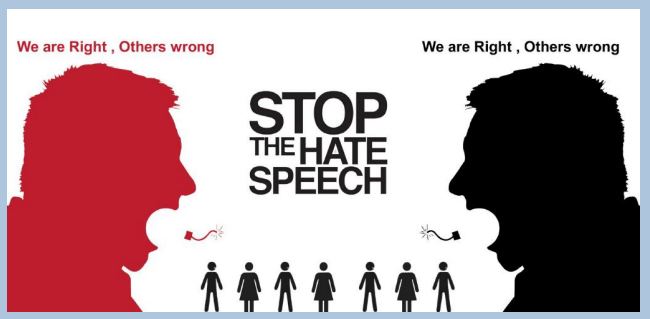How IMOK gathered hate data without using custom made software? IMOK's latest publication

07/08/2022
The Hate Speech Crisis: Ways to start fixing it: A toolkit for civil society organizations and activists
How Independent Media Organisation in Kurdistan gathered hate data manually and without using custom made software
Case study
Pshtiwan Faraj Mohammed
A series of three trainings for 45 journalists on responsible reporting were organized in Basra, Baghdad and Erbil. The trainings covered many forms of religious hate speech, its
consequences, and how to avoid common pitfalls when reporting sensitive content and
stories about ethnic and religious differences.
The training materials were based on the social media monitoring activity and included good and bad practices, as well as their real-life consequences. T rainees were encouraged to report content in a way that exhibits critical thinking, fosters understanding, and resists sectarian narratives.
Independent Media Organisation in Kurdistan
NGO in northern Iraq founded in 2008 by Free Press Unlimited, working to improvethe
quality of Iraq ’ s media and to promote peace, tolerance and coexistence and advocate for marginalized communities.
Target audience are women, youth, IDPs, refugees, religious minorities in Iraq, journalists and CSO activists.
We organized consultation sessions with key stakeholders from all religious groups in Iraq to make them aware of our plan, and to ensure synergies with existing initiatives. F our consultation sessions took place in Erbil, Mosul and Baghdad, and two additional meetings with the Sunni Endowment and the Shi ’a Endowment, respectively . The participants were asked to identify the forms of hateful expressions and the terms and phrases used to denigrate their communities they know about. Gender inclusion was mainstreamed throughout.
We formed a specialized team of three to monitor adverse content affecting religious communities on social media platforms, who, between them, spoke Kurdish, Arabic and English. We trained the team on the different kinds of hate speech, vocabularies and patterns to look for , and how to measure the impact and spread of hateful content. The online content they identified was systematically collected in a database to allow for further analysis and documentation.
Building on the results of social media monitoring, the project team released periodic bulletins with the main trends and findings. The bulletins were drafted in-house in cooperation with the Iraq Media House (an Iraqi NGO specialized in media monitoring). Gender being important, speech targeting women was included in the research and the bulletins.
A series of three trainings for 45 journalists on responsible reporting were organized in Basra, Baghdad and Erbil. The trainings covered many forms of religious hate speech, its
consequences, and how to avoid common pitfalls when reporting sensitive content and
stories about ethnic and religious differences. The training materials were based on the social media monitoring activity and included good and bad practices, as well as their real-life consequences. Trainees were encouraged to report content in a way that exhibits critical thinking, fosters understanding, and resists sectarian narratives.
After a two-day workshop on grassroots advocacy campaigns, the project produced a series of advocacy materials: 612 brochures (presenting statistics and findings from the project, in Arabic and Kurdish) and 260 handbooks (serving as a guide to practitioners, in Arabic and Kurdish). In addition, the campaign materials also called for the enactment of laws against internationally prohibited hate speech and were distributed to policymakers in Baghdad and across Iraq.
"More needs to be done to counter such rhetorical discourses of hate and toxic influence. More needs to be done to encourage a language of dialogue, tolerance and finding
of mutual understanding of our humanity regardless of religious differences and or ethnic, racial and sectarian differences. Focus should be on what unites Iraq's rich and diverse community rather than on what divides them according to identity politics.’ Dr. Pshtiwan Faraj, Program Manager at Independent Media Organization in Kurdistan.